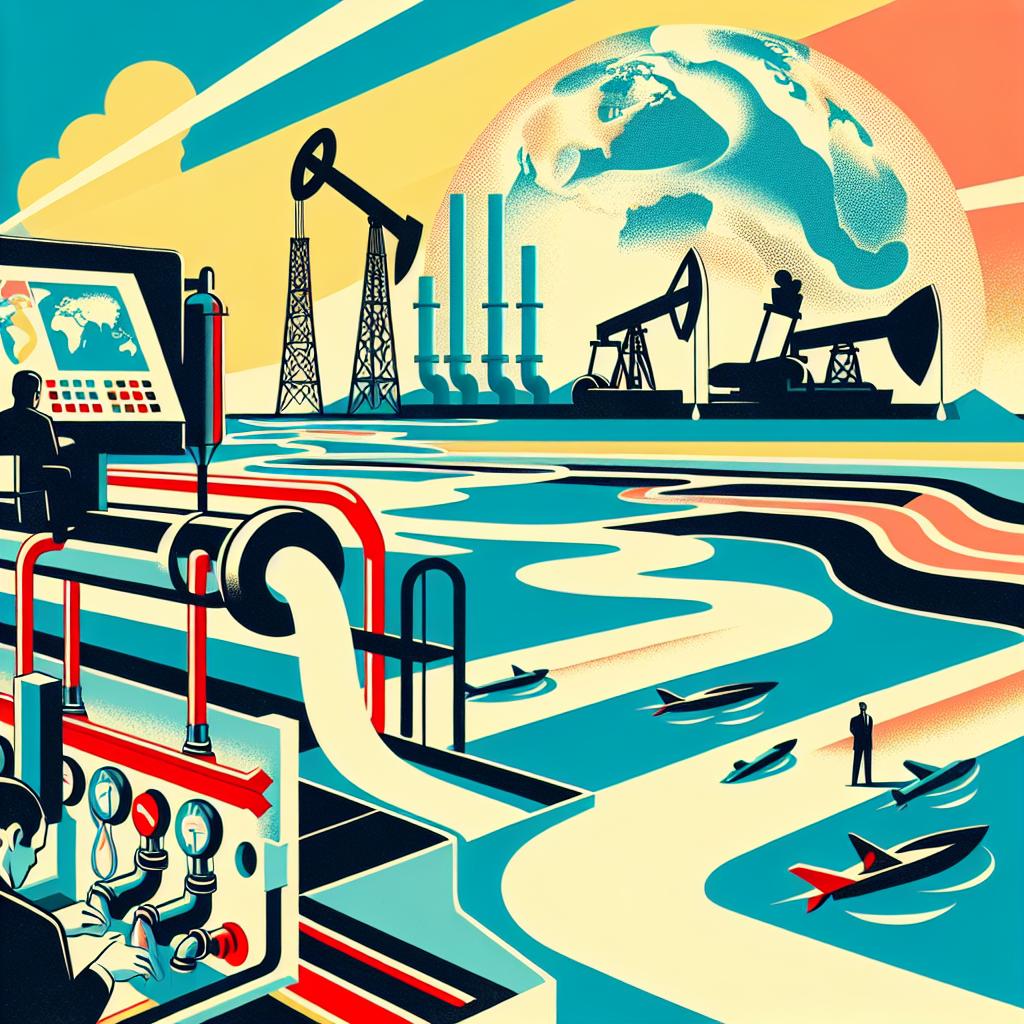The Importance of Water and Its Implications for Global Stability
Water is an essential resource for all life on Earth and a significant determinant of a region’s prosperity. With growing populations and intensifying climate change effects, the demand for fresh water rises, but so does geopolitical tension. Governments worldwide are starting to recognize that access to water could not only determine national security but could spark international disputes.
Extracted Excerpt:
An increasingly scarce resource, water is becoming a flashpoint for geopolitical conflict, especially in water stressed regions.
The Competitive Nature of Water Resources
As the global population surges—projected to reach nearly 9.7 billion by 2050—competition for freshwater resources escalates. Already, some regions face severe water shortages, which have profound implications for agriculture, industry, and domestic consumption. Countries heavily reliant on rivers that traverse borders now find themselves in a precarious position. Here, history meets contemporary challenges, highlighting how geopolitical competition is inextricably tied to the flow of water.
The construction of dams has emerged as both a necessity for hydropower and irrigation, and a point of contention. In regions like South Asia, countries like India and Pakistan grapple with shared river systems. The Indus River, vital for millions, particularly in Pakistan, faces management issues stemming from construction projects on the Indian side, thereby raising the stakes for equitable resource use. The status of rivers is a politically laden topic, often respected in diplomatic discussions—but can instantly turn adversarial.

Case Studies: Regional Tensions and International Conflicts
Water-related disputes are particularly salient in areas like the Middle East. The Tigris and Euphrates Rivers exhibit a notable conflict among Iraq, Turkey, and Syria, particularly after the construction of the Ilisu Dam by Turkey, which critics argue threatens Iraq’s water supply. Moreover, as these nations’ populations grow and climate change exacerbates resource distribution, the political landscape risks becoming fraught with conflict.
Ultimately, these types of disputes enter the realm of international law with little recourse for smaller nations that depend on larger upstream states for their water supply. Many of these disputes lack effective solutions, leading nations to take actions that irritate relations further rather than facilitate meaningful dialogue over shared challenges. Political sovereignty, national pride, and survival instinct can lead nations down a path of adversarial competition over what should be a collaborative resource.
Meanwhile, in Africa, rising tensions over the Nile’s water flow highlight similar themes. Egypt, Ethiopia, and Sudan are engaged in an ongoing dispute over Ethiopia’s Grand Renaissance Dam. The complexities involved show us how nuanced the conversations around water management must be, considering historical agreements and potential threats to existing power dynamics.
Extracted Excerpt:
Political disputes over water rights are expected to grow as climate change and population pressures exacerbate shortages, challenging the stability of entire regions.
Looking Ahead: Solutions and International Cooperation
Addressing the expanding crisis for freshwater resources will require multi-level solutions. Innovations in water technology, improved water management practices, and international agreements will be critical to preventing conflicts from emerging into broader geopolitical crises. As seen with international sanitation and water management frameworks, applying cooperative rather than competitive strategies can ease tensions and contribute to solutions that benefit all parties involved.
To forge a future where water scarcity doesn’t equate to warfare, countries must adopt comprehensive water-sharing agreements, respecting both historical contexts and modern realities. This can provide a platform for dialogue that can facilitate not only shared resources but also trust-building mechanisms essential in diplomatic negotiations.
The critical narrative in addressing water scarcity is thus one of approaching this resource as a building block for collaboration and peace rather than an unwarranted competing stake. Global frameworks—like the United Nations’ Sustainable Development Goal for Clean Water and Sanitation—such standards that promote equitable access while catalyzing partnerships could shift the current divergent paths toward a cooperative future grounded in a shared, sustainable approach.
The growing geopolitical significance of freshwater undeniably colors modern state relations. As we navigate toward an era where every drop constitutes existential value, bridging the gaps formed by politicized water access must become a fundamental goal across international communities, redefining how humanity views its most precious resource.
The Way Forward—A Global Responsibility
In recognizing the importance of water in an increasingly globalized yet fractured landscape, we must refocus our lens from division to unification. Countries face an intertwined fate as we see borders eroded by the flow of rivers shared far beyond any national interest. Innovation, cooperation, and commitment to peace emerge as strategies of necessity, fostering interdependence among nations instead of conflict.
From grassroots initiatives to world forums, solutions centered around collaboration will increase the chances of managing this vital resource effectively. The global community needs a collective responsibility to ensure access to water does not become a tool for geopolitical strife but rather, a symbol of solidarity, providing a roadmap to sustainable management now and in the significant challenges heading our way.



